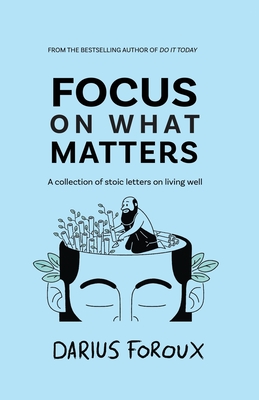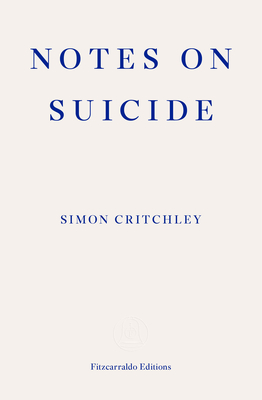



Not quite non-fiction, not quite self-help. It's a work of art about conflicting philosophies.
Many books believe they know how you should live. But each book disagrees with the next. In How to Live, each chapter believes it knows how you should live. And each chapter disagrees with the next.
One chapter makes a compelling argument for why you should be completely independent, keeping all options open. The next chapter argues why you should commit to one career, one place, and one person.
One chapter persuades you to be fully present, and experience each moment. The next, to delay gratification and invest for the future.
Which one is right? Which does the author believe? All of them. It's a philosophy of conflicting philosophies.
A very unique and thought-provoking book. Meant for reflection as much as instruction.
113 incredibly succinct pages of profound insights. No philosophers are quoted. No -isms are named. Only actionable directives. The end result feels more like poetry than prose.


Why is it so hard to live well amidst the chaos and noise? While you might think this is a problem of the modern world, it's a timeless issue.
2000 years ago, the ancient Stoics talked about the exact same challenges we're facing today, like:
The answers can be found in the philosophy of Stoicism. I've used the philosophy since 2014 to change my life and career.
Focus on What Matters is a collection of 70 letters/essays I wrote about different aspects of life, from happiness, wealth, health to relationships and much more.
These letters, inspired by the original works of the Stoic philosopher Seneca, serve as reminders to focus on the right things in our chaotic lives.
The goal of the original Letters From A Stoic by Seneca was to share Stoic ideas with his friend, Lucilius, who had hedonistic tendencies and lived a busy life.
Focus on What Matters is inspired by those letters. It will show you..
In short, this book helps you to live well despite the challenges of daily life.



A revolutionary book tracing the collapse of the paradigms that have organized the world for centuries
In Dysphoria Mundi, Paul B. Preciado, best known for his 2013 cult classic Testo Junkie, has written a mutant text assembled from essays, philosophy, poetry, and autofiction that captures a moment of profound change and possibility. Rooted in the isolation of the COVID-19 pandemic, and taking account of the societal convulsions that have ensued, Preciado tries to make sense of our times from within the swirl of a revolutionary present moment. The central thesis of this monumental work is that dysphoria, to be understood properly, should not be seen as a mental illness but rather as the condition that defines our times. Dysphoria is an abyss that separates a patriarchal, colonial, and capitalist order hurtling toward its end from a new way of being that, until now, has been seen as unproductive and abnormal but is in fact the way out of our current predicament. With echoes of visionaries such as William S. Burroughs and Kathy Acker, Preciado's theoretical writing is propelled by lyric power while providing us with a critical toolbox full of new concepts that can guide our thinking and our actions: transition, cognitive emancipation, denormalization, disidentification, electronic heroin, digital coups, necro-kitsch. Dysphoria Mundi is Preciado's most accessible and significant work to date, in which he makes sense of a world in ruins around us and maps a joyous, radical way forward.

Why is it so hard to live well amidst the chaos and noise? While you might think this is a problem of the modern world, it's a timeless issue.
2000 years ago, the ancient Stoics talked about the exact same challenges we're facing today, like:
The answers can be found in the philosophy of Stoicism. I've used the philosophy since 2014 to change my life and career.
Focus on What Matters is a collection of 70 letters/essays I wrote about different aspects of life, from happiness, wealth, health to relationships and much more.
These letters, inspired by the original works of the Stoic philosopher Seneca, serve as reminders to focus on the right things in our chaotic lives.
The goal of the original Letters From A Stoic by Seneca was to share Stoic ideas with his friend, Lucilius, who had hedonistic tendencies and lived a busy life.
Focus on What Matters is inspired by those letters. It will show you..
In short, this book helps you to live well despite the challenges of daily life.


HarperCollins is proud to present its incredible range of best-loved, essential classics.
No man can live a happy life, or even a supportable life, without the study of wisdom
Lucius Annaeus Seneca (4 BC-AD 65) is one of the most famous Roman philosophers. Instrumental in guiding the Roman Empire under emperor Nero, Seneca influenced him from a young age with his Stoic principles. Later in life, he wrote Epistulae Morales ad Lucilium, or Letters from a Stoic, detailing these principles in full.
Seneca's letters read like a diary, or a handbook of philosophical meditations. Often beginning with observations on daily life, the letters focus on many traditional themes of Stoic philosophy, such as the contempt of death, the value of friendship and virtue as the supreme good.
Using Gummere's translation from the early twentieth century, this selection of Seneca's letters shows his belief in the austere, ethical ideals of Stoicism - teachings we can still learn from today.

One of the most important writers of the past hundred years. -- The Times (London)
In this perceptive collection of essays, Doris Lessing addresses directly the prime questions before us all: how to think for ourselves, how to understand what we know, how to pick a path in a world deluged with opinions and information, and how to look at our society and ourselves with fresh eyes.



HarperCollins is proud to present its incredible range of best-loved, essential classics.
The discourses of the great Stoic philosopher Epictetus are regarded as some of the most influential teachings of the ancient world. Born into slavery and sent into exile before setting up a school of philosophy, Epictetus delivered a series of lectures where he argued that true happiness comes only when we learn to distinguish what is within our power and what is beyond our personal control.
Using George Long's 1890 translation, this edition includes a selection of Epictetus' key principles, as well as a manual of his core philosophy, the Encheiridion. With clarity, conviction and timeless wisdom that is as relevant today as it was two thousand years ago, these teachings navigate the complexities of the human condition and offer rational guidance for the turmoil of modern life.




A posthumous collection of essays by internationally renowned essayist, literary critic, philosopher, and author of The Name of the Rose--one of the most influential thinkers of our time (Los Angeles Times)
In his final collection of works, celebrated essayist and novelist Umberto Eco observes the changing world around him with irrepressible curiosity and profound wisdom. He sees with fresh eyes the upheaval in ideological values, the crises in politics, and the unbridled individualism that have become the backdrop of our lives--a liquid society in which it's not easy to find a polestar, though stars and starlets abound. In these pieces, written for his regular column in L'Espresso magazine, Eco brings his dazzling erudition and keen sense of the everyday to bear on topics such as popular culture and politics, being seen, conspiracies, the old and the young, new technologies, mass media, racism, and good manners. It is a final gift to his readers--astute, witty, and illuminating.
